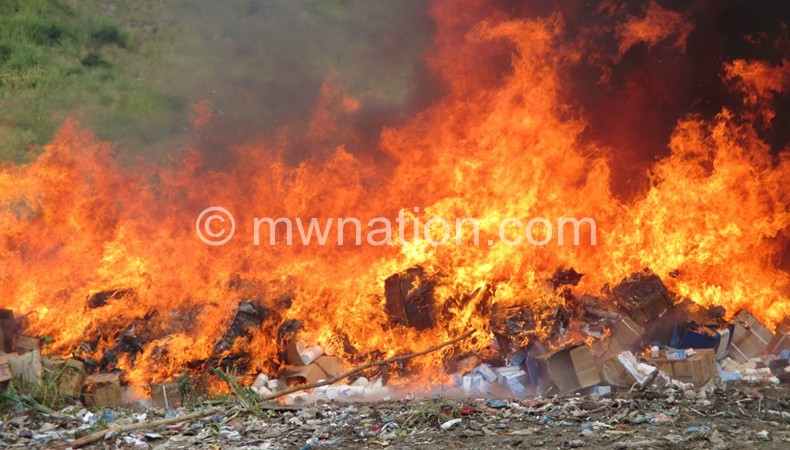Expired drugs disposal costly, says ministry
Ministry of Health has said disposal of expired drugs and medical supplies does not come cheap and has urged stakeholders involved in the exercise to follow set protocols to avoid endangering people’s lives and the environment.
In a written response, Ministry of Health deputy public relations officer Loness Gwazanga Chowawa said disposal of medical waste involves many stakeholders for purposes of accountability, security and to ensure compliance to given protocols.

She said that this happens regularly where expired commodities are arranged to be destroyed in line with set protocol to protect humanity and the environment.
“We already have guidelines on donations. One of them is that we do not receive donations that are remaining with less than 6 months shelf life. But most of these donations are slow moving commodities,” said Chowawa.
The ministry’s explanation comes on the back of district councils footing millions of kwacha in bills to undertake the process of disposal of expired drugs and other medical.
The latest case involves Rumphi District Council which is looking for about K13 million to get rid of five tonnes of expired drugs dating back to 2017.
A letter of no objection that we have seen dated February 6 2024 and signed by Public Procurement and Disposal of Assets Authority (PPDA) director general Edington Chilapondwa has given the council permission to proceed with disposing of the expired drugs and vaccines, through destruction method.
Rumphi district commissioner Emmanuel Bulukutu confirmed the development, saying they have clearance from the PPDA to destroy the expired drugs.
He said the issue was discussed during a council meeting held some weeks ago, adding that they are looking for a cost-effective way of destroying the drugs without compromising set protocols.
Bulukutu said the bill is for fuel and allowances for stakeholders from the PMRA, Central Medical Stores Trust (CMST) and environmentalists who have to witness the disposal.
In response to our query on their role in regulating donated drugs, CMST spokesperson Herbert Chandilanga said the Ministry of Health receives the donations, thus, issues about donated items can best be addressed by them.
“Drug donations are country to country. These are directly controlled by government. CMST is given the distribution list but it is government which directs which drugs should go to hospitals,” he said.





